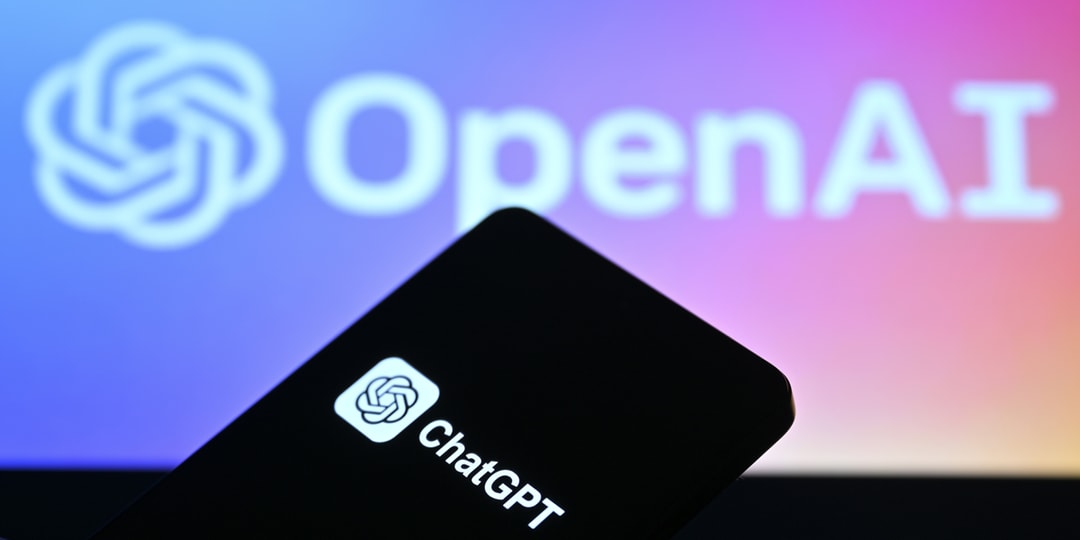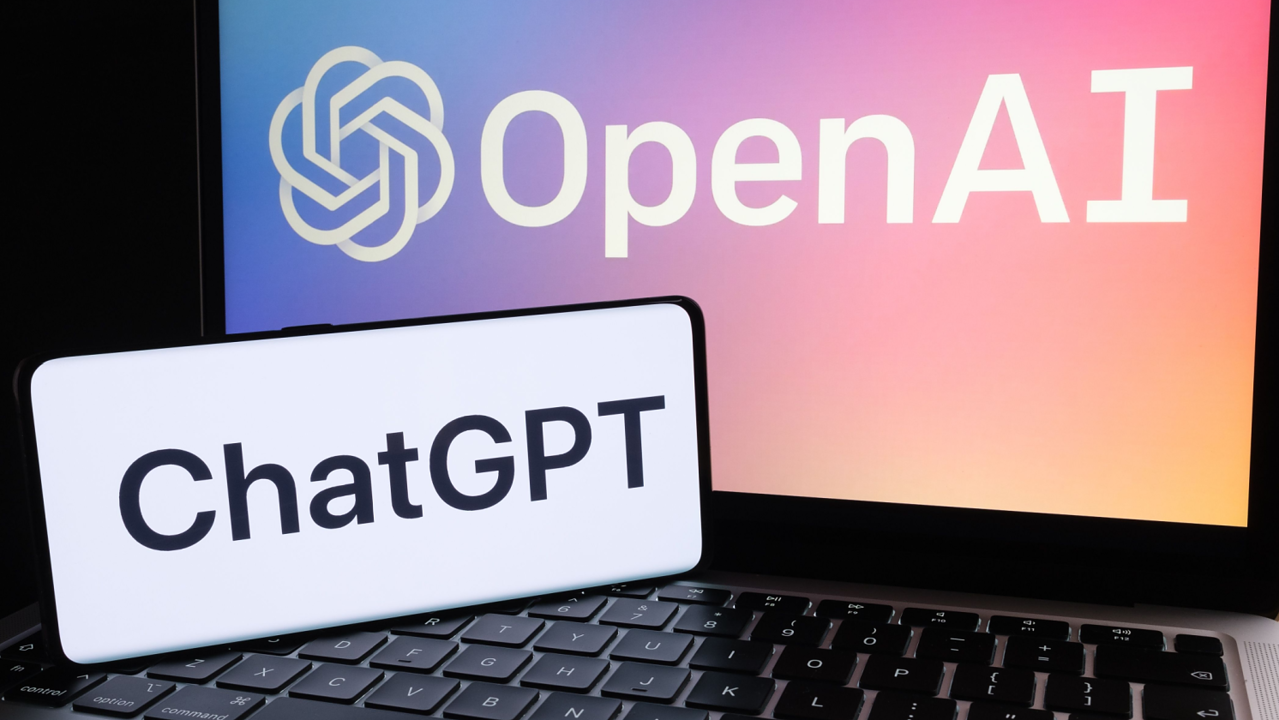OpenAI Facing FTC Investigation: Concerns Regarding ChatGPT And AI Development

Table of Contents
Data Privacy Concerns at the Heart of the OpenAI FTC Investigation
The FTC's investigation into OpenAI centers heavily on its data collection and usage practices, particularly concerning the vast amounts of user data employed to train ChatGPT. This raises serious questions about compliance with existing consumer privacy laws. The FTC is likely examining whether OpenAI's practices violate regulations such as the Children's Online Privacy Protection Act (COPPA), if applicable, and other state and federal laws designed to protect user data.
- Violation of consumer privacy laws: The FTC is scrutinizing whether OpenAI's data collection and use methods comply with existing regulations. This includes examining the consent mechanisms used and whether users were fully informed about how their data would be used.
- Concerns about unauthorized data collection and use: The sheer volume of data used to train ChatGPT raises concerns about potential unauthorized collection and use of personal information. The FTC is likely investigating the extent to which OpenAI safeguards user data and prevents its misuse.
- Lack of transparency regarding data handling processes: Critics argue that OpenAI lacks sufficient transparency regarding its data handling processes. The FTC is likely assessing whether OpenAI provides adequate information to users about how their data is collected, stored, and used.
- Potential biases embedded within the data used to train the model and their impact on users: The data used to train AI models can reflect and amplify existing societal biases. This can lead to discriminatory outcomes for certain groups of users. The FTC is investigating whether biases in ChatGPT's training data have resulted in unfair or discriminatory outputs.
The potential risks of AI bias and discrimination stemming from flawed data sets are considerable. The OpenAI FTC investigation underscores the need for rigorous data auditing and mitigation strategies to ensure fairness and equity in AI systems. Failure to address these concerns could lead to significant legal and reputational damage for OpenAI.
The Algorithmic Transparency Issue and the OpenAI FTC Investigation
Another key aspect of the OpenAI FTC investigation revolves around the lack of transparency surrounding ChatGPT's algorithms and decision-making processes. The "black box" nature of many AI models makes it difficult to understand how they arrive at their outputs, raising concerns about accountability and potential bias.
- Concerns about the “black box” nature of AI models and the difficulty in understanding their output: The complexity of ChatGPT's algorithms makes it challenging to scrutinize its decision-making process. This opacity raises concerns about the potential for errors and unintended consequences.
- The challenge of auditing AI systems for bias and fairness: Without transparency, it's difficult to audit AI systems for bias and ensure fairness. This lack of accountability can lead to discriminatory outcomes, perpetuating existing societal inequalities.
- The potential for algorithmic accountability and regulatory oversight: The OpenAI FTC investigation highlights the need for mechanisms to hold AI developers accountable for the outputs of their systems. This likely includes increased regulatory oversight and stricter guidelines for algorithmic transparency.
- The need for explainable AI (XAI) to improve user trust and understanding: Explainable AI aims to make AI decision-making processes more transparent and understandable. This is crucial for building user trust and ensuring responsible AI development.
Transparency is paramount in building trust and ensuring responsible AI development. The OpenAI FTC investigation underscores the importance of moving towards more explainable and accountable AI systems.
The Broader Implications of the OpenAI FTC Investigation for AI Development
The OpenAI FTC investigation carries significant implications for the broader AI industry. It signals a potential shift towards increased regulatory scrutiny of AI companies and a greater emphasis on ethical AI development.
- Potential for increased regulatory scrutiny of AI companies: The investigation sets a precedent for increased regulatory scrutiny of other AI companies, potentially leading to stricter regulations and guidelines.
- The need for ethical guidelines and industry best practices for AI development: The investigation highlights the need for the AI industry to develop and adopt robust ethical guidelines and best practices. This includes establishing clear standards for data privacy, algorithmic transparency, and bias mitigation.
- The impact on innovation and competition in the AI sector: Increased regulation could impact innovation and competition within the AI sector, potentially slowing down the development of new AI technologies. However, it could also foster a more responsible and ethical approach to AI development.
- The role of governments and international organizations in regulating AI: The OpenAI FTC investigation underscores the crucial role of governments and international organizations in establishing frameworks for AI regulation. This is a complex and evolving area, requiring international cooperation to effectively address the challenges posed by AI.
The potential for future regulations on data privacy and AI development is significant. The OpenAI FTC investigation serves as a wake-up call, urging the industry to proactively address ethical and legal concerns before facing stricter regulatory action.
Conclusion
The FTC's investigation into OpenAI and its flagship product, ChatGPT, highlights the growing concerns surrounding the ethical and legal implications of AI development. Issues of data privacy, algorithmic transparency, and the broader societal impact of AI are at the forefront. The OpenAI FTC investigation underscores the urgent need for robust regulations and ethical guidelines for AI development. Staying informed about the ongoing developments in the OpenAI FTC investigation and advocating for responsible AI practices is crucial to shaping a future where AI benefits society without compromising fundamental rights and values. Further research into the OpenAI FTC Investigation and its impact on AI regulation is encouraged.

Featured Posts
-
 16 Million Penalty T Mobiles Three Year Data Breach Settlement
Apr 22, 2025
16 Million Penalty T Mobiles Three Year Data Breach Settlement
Apr 22, 2025 -
 La Palisades Wildfires Which Celebrities Lost Their Homes
Apr 22, 2025
La Palisades Wildfires Which Celebrities Lost Their Homes
Apr 22, 2025 -
 Ftc Launches Probe Into Open Ai A Deep Dive Into The Investigation
Apr 22, 2025
Ftc Launches Probe Into Open Ai A Deep Dive Into The Investigation
Apr 22, 2025 -
 Exclusive Trump Administrations Plan To Defund Harvard By 1 Billion
Apr 22, 2025
Exclusive Trump Administrations Plan To Defund Harvard By 1 Billion
Apr 22, 2025 -
 T Mobile Hit With 16 Million Fine For Data Breaches Spanning Three Years
Apr 22, 2025
T Mobile Hit With 16 Million Fine For Data Breaches Spanning Three Years
Apr 22, 2025
